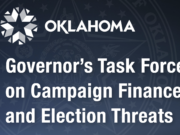Tom Friedman’s latest column in The New York Times (‘Is It Sheldon Adelson’s World?’) describes how political donor Sheldon Adelson spends his money differently in America and Israel, and in so doing illustrates the limits of what campaign finance regulation can achieve:
“Israel has much stricter laws on individuals donating to political campaigns, so Adelson got around that in 2007 by founding a free, giveaway newspaper in Israel – Israel Hayom – whose sole purpose is to back Netanyahu, attack his enemies in politics and the media, and enforce a far-right political agenda to prevent any Israeli territorial compromise on the West Bank (which, in time, could undermine Israel as a Jewish democracy). Graphically attractive, Israel Hayom is now the biggest-circulation daily in Israel. Precisely because it is free, it is putting a heavy strain on competitors, like Yediot and Haaretz, which both charge and are not pro-Netanyahu.”
I quibble with Friedman’s phrasing that Adelson “got around” the law – he complied with the law, he didn’t evade it – but there’s a larger point here that’s instructive: Adelson’s ability to amplify his voice with money was not seriously diminished by strict campaign finance laws. He simply found different ways to spend and exert influence.
This is the Achilles heel for advocates of stricter campaign finance regulation or a more expansive definition of corruption in America. As Israel found out, strict campaign finance laws can’t “get money out of politics” because campaign spending is not the only way money influences politics. But, on the other hand, if government had license to regulate anything that a) costs money and b) is politically influential, the First Amendment’s free speech and press clauses would be effectively nullified.
Consider the myriad ways money can amplify influence. Sure, wealthy individuals can donate to like-minded politicians, political parties, or political action committees in the hopes of furthering their campaigns. But they can also fund get-out-the-vote efforts targeted at people likely to share their views. They can exert influence through media corporations, as Adelson does in Israel, and as people like Jeff Bezos (owner of The Washington Post) and Rupert Murdoch (founder and chairman of News Corp.) do in America. They can fund university programs or other training programs that influence the views and careers of those who participate in them. They can fund think tanks and research institutes that garner influence by providing much-needed information to time-strapped policymakers.
They can fund forums or other events that bring together like-minded experts to influence policymaking by communicating with voters, crafting model legislation, or simply by creating the appearance of consensus on an issue. They can create or promote art – films, novels, poems, songs, paintings, etc. – that expresses their values. In a world where simply asking people to explain a policy changes their opinion of it, the opportunities for political persuasion and influence are endless.
If the object of regulation is preventing quid pro quo corruption, this is not a problem. Government can police the interactions between candidates and supporters while letting everyone else go about their business. But if the object of regulation is securing equal influence for all, every opportunity for persuasion also beckons regulation. What happens when calls for tax-financed campaigns run up against the realization that campaigns are just one of many avenues for money to influence politics? If privately financed campaigns are considered by pro-regulation advocates to be “distorting,” what about privately financed universities, think tanks, newspapers, and film studios?
The current quid pro quo definition of corruption may not include every activity labeled as bad or distorting in politics, but as Adelson’s Israeli paper demonstrates, decoupling money and influence is an impossible goal if we intend to preserve freedom of speech and press in any recognizable form. Admitting that, the virtues of the quid pro quo standard from a policy perspective become much clearer. Quid pro quos are easy to define, and regulations guarding against them can be narrowly tailored to minimize infringement on freedom of speech, press, and association.
Broader notions of corruption, on the other hand, open a Pandora’s Box of government power to regulate speech. Instead of obliterating the First Amendment with an expansive definition of corruption or playing a futile game of regulatory whack-a-mole with campaign finance rules, we would be wise to foster an environment where the law is simple, clear, and consistent, and people are free to associate, speak, and spend as they wish.














